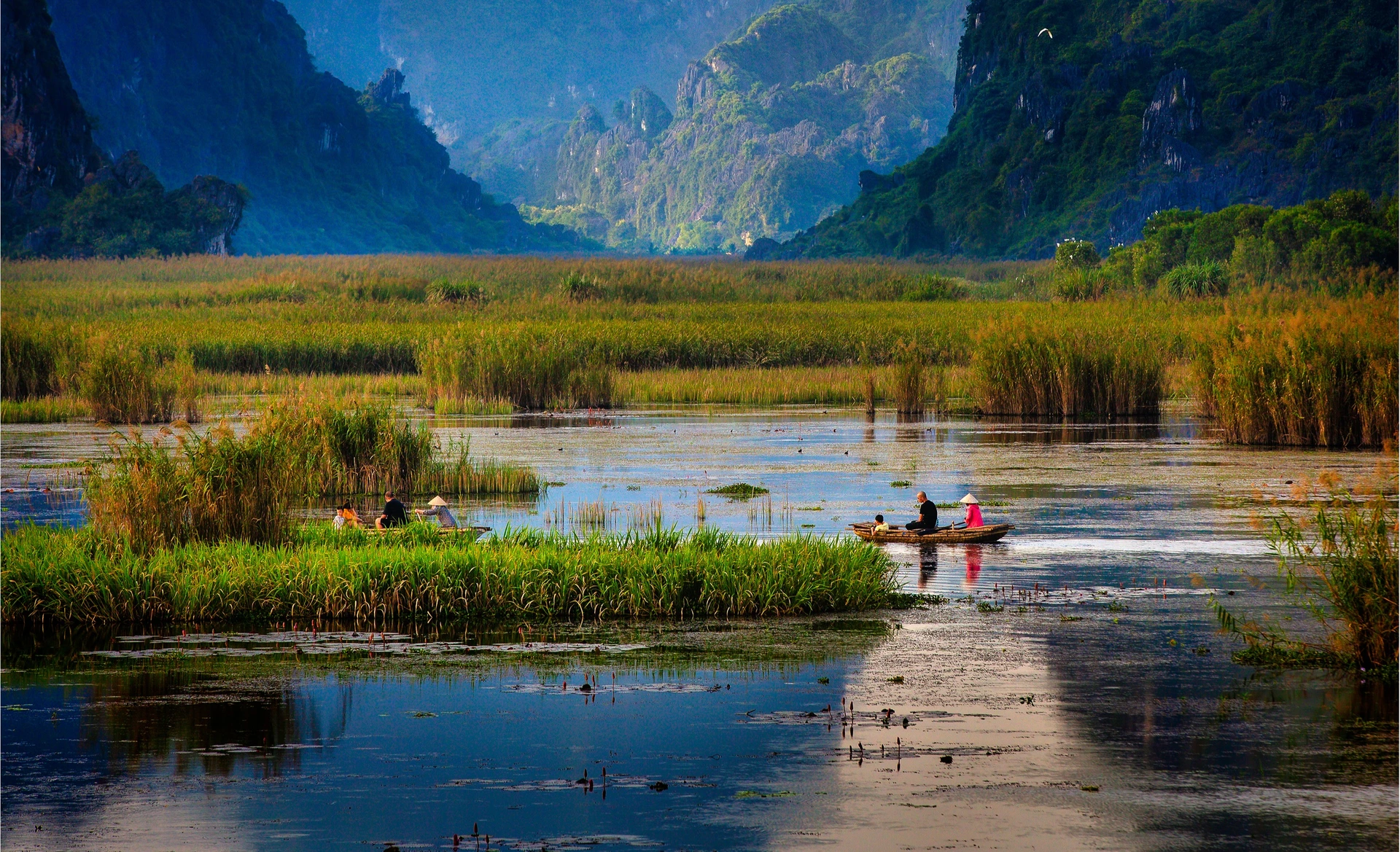With an area of over 3,000 hectares, Van Long is the largest wetland nature reserve in the Northern Delta. The highlight here is the majestic limestone mountains, cave systems surrounded by wetlands, shallow lakes, abundant vegetation and waterfowl.
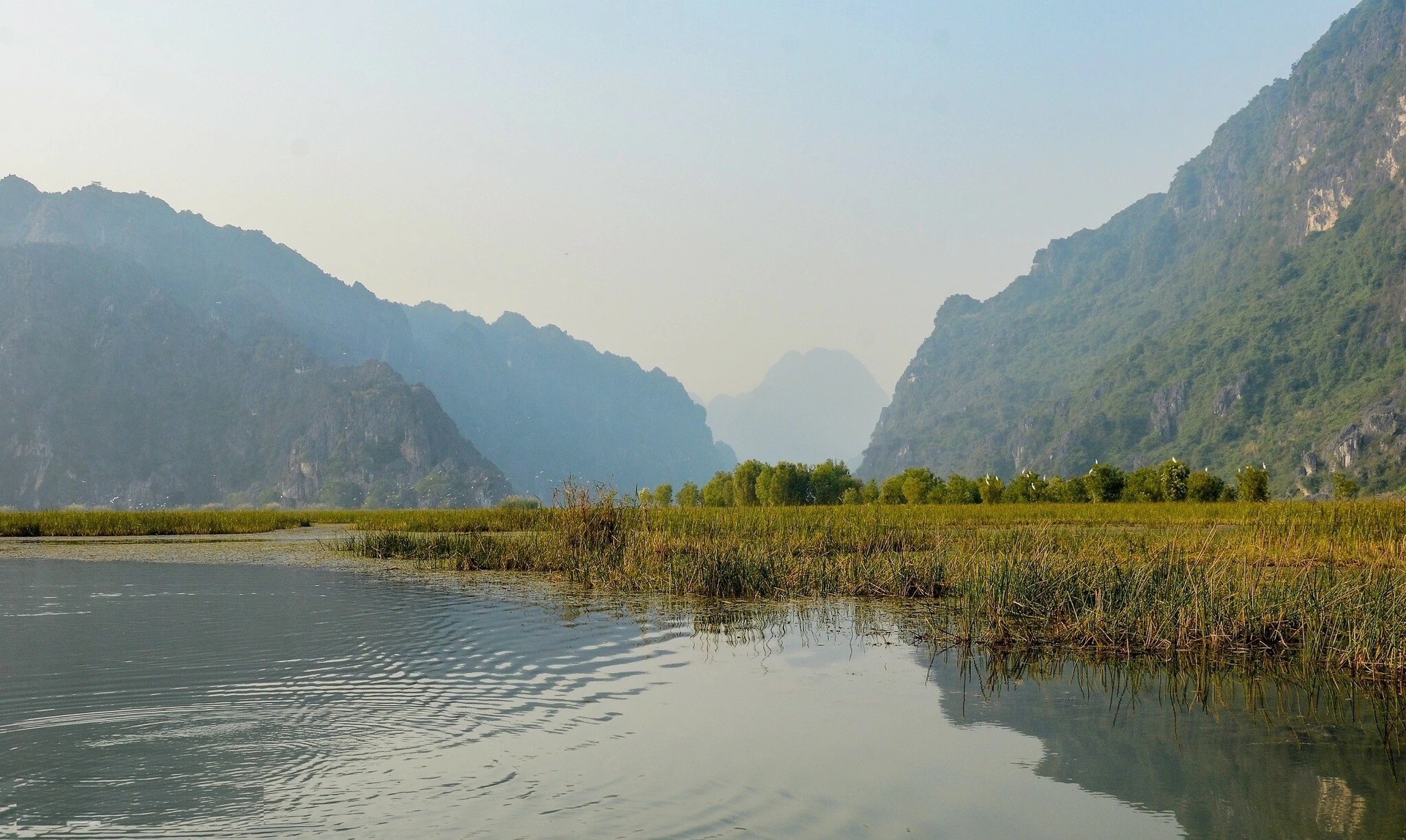
The ornithology in Van Long is rich, with 102 species recorded to date, including native waterfowl and migratory birds. Van Long lagoon area is home to many species of storks, such as white storks, large storks, missed storks, fly storks, storks and snails (Anastomus oscitans, photo). Snail storks belong to the crane family, called snail storks because the favorite food of this bird is snails in swamps and rice fields.
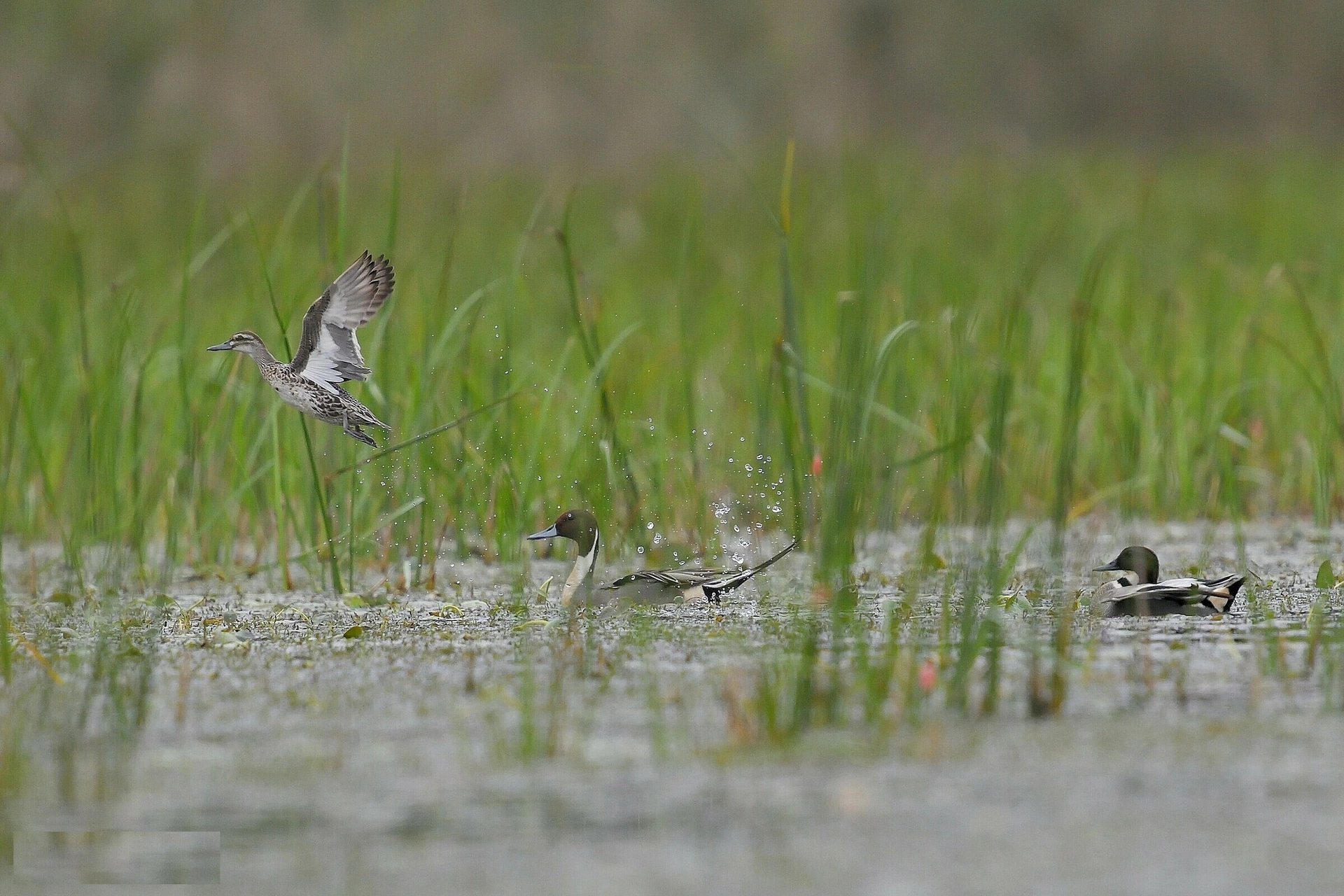
The moldy duck (Anas acuta), a migratory bird, winters and feeds in flooded habitats in the Northern and Central Plains, including Van Long Lagoon.
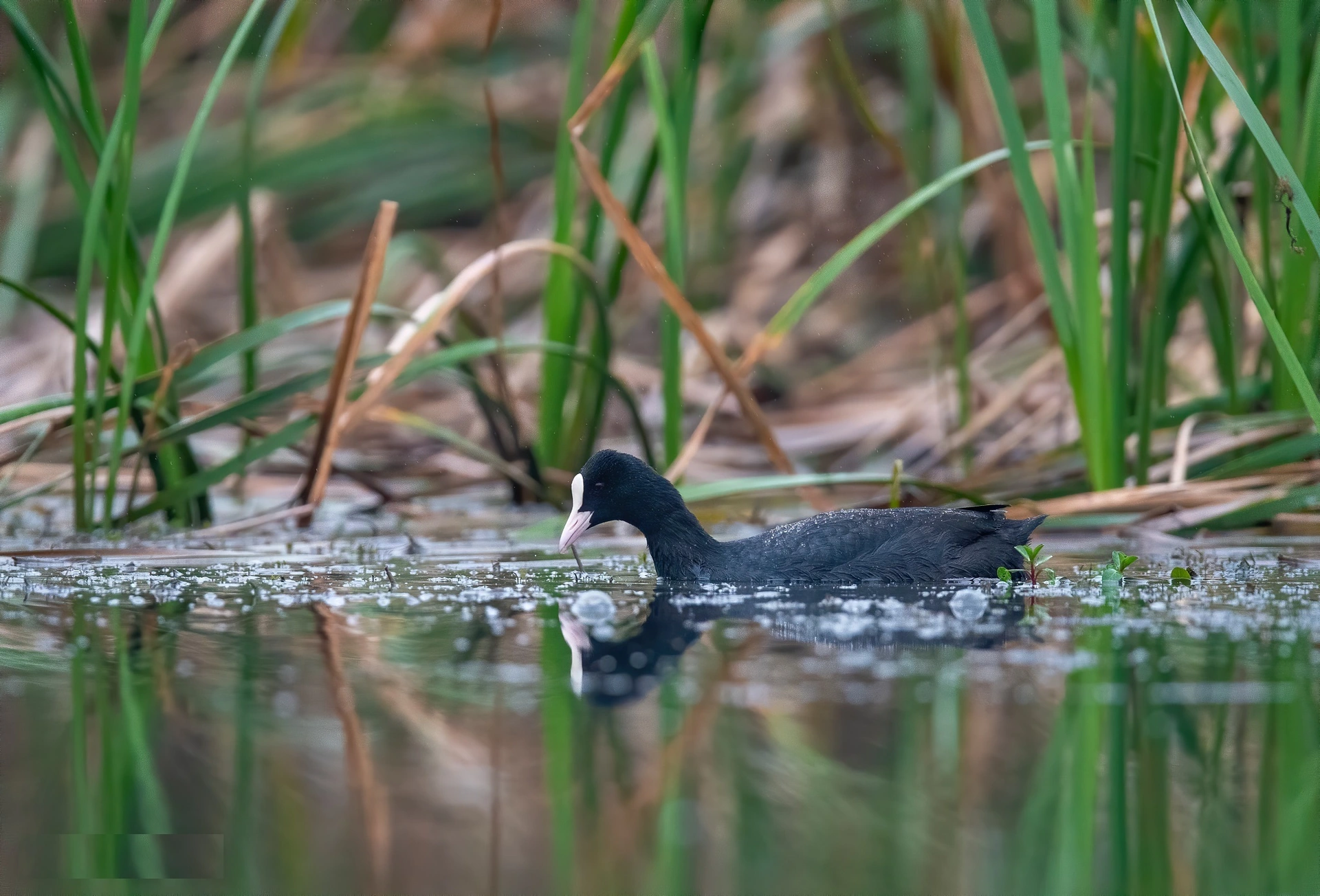
Ginseng (Fulica atra), a migratory bird, has black plumage, and its beak and forehead are white. The interesting thing about this species is that it "flies on the water to gain momentum" before taking off. Currently, ginseng is no longer popular in distribution areas in northern Vietnam.
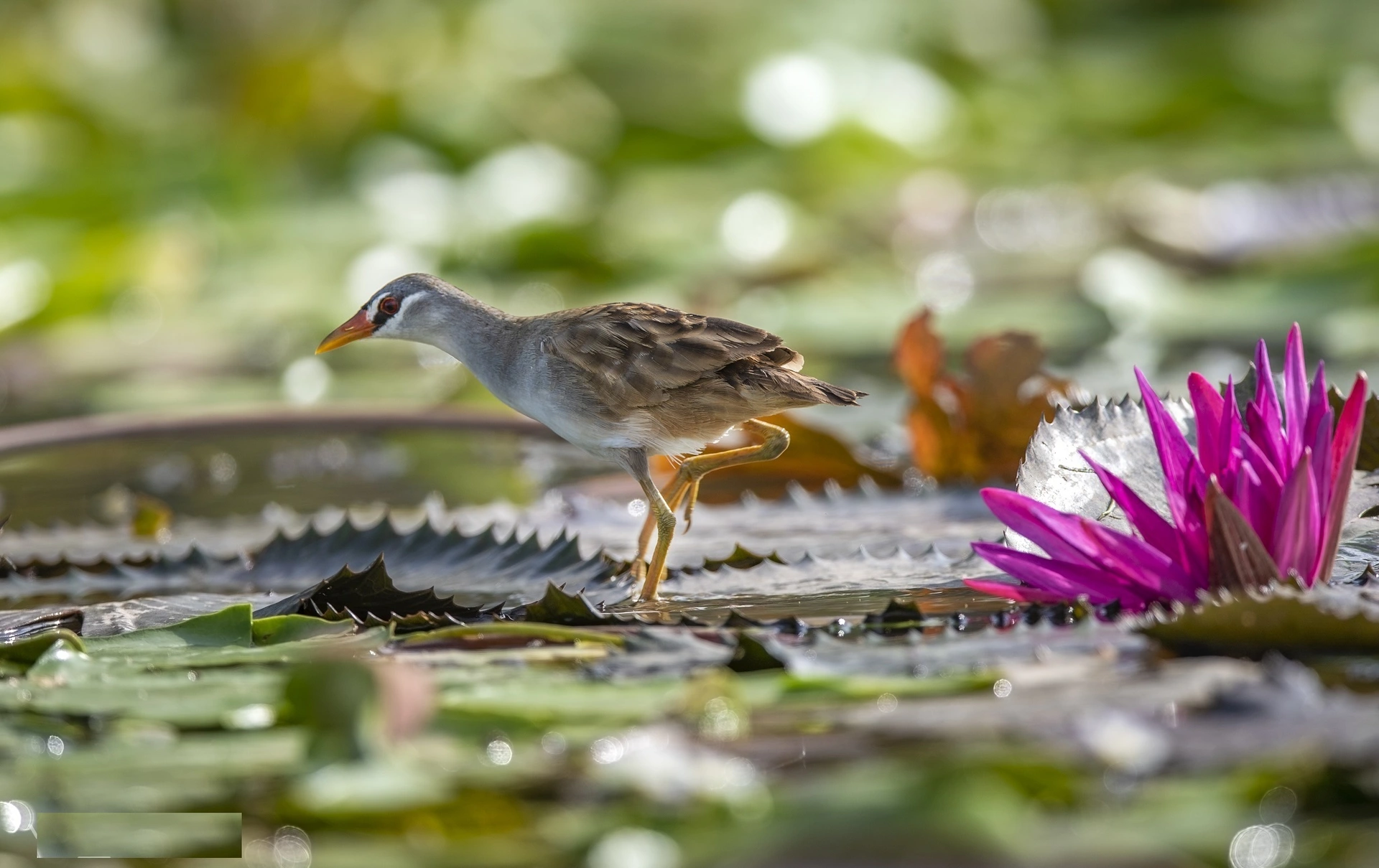
White-browed chicken (Rallina eurizonoides) feeding on the water lily lagoon. This is a small waterfowl with long legs and toes, which is easily distinguished from other waterfowl by white streaks on and under the eyes.
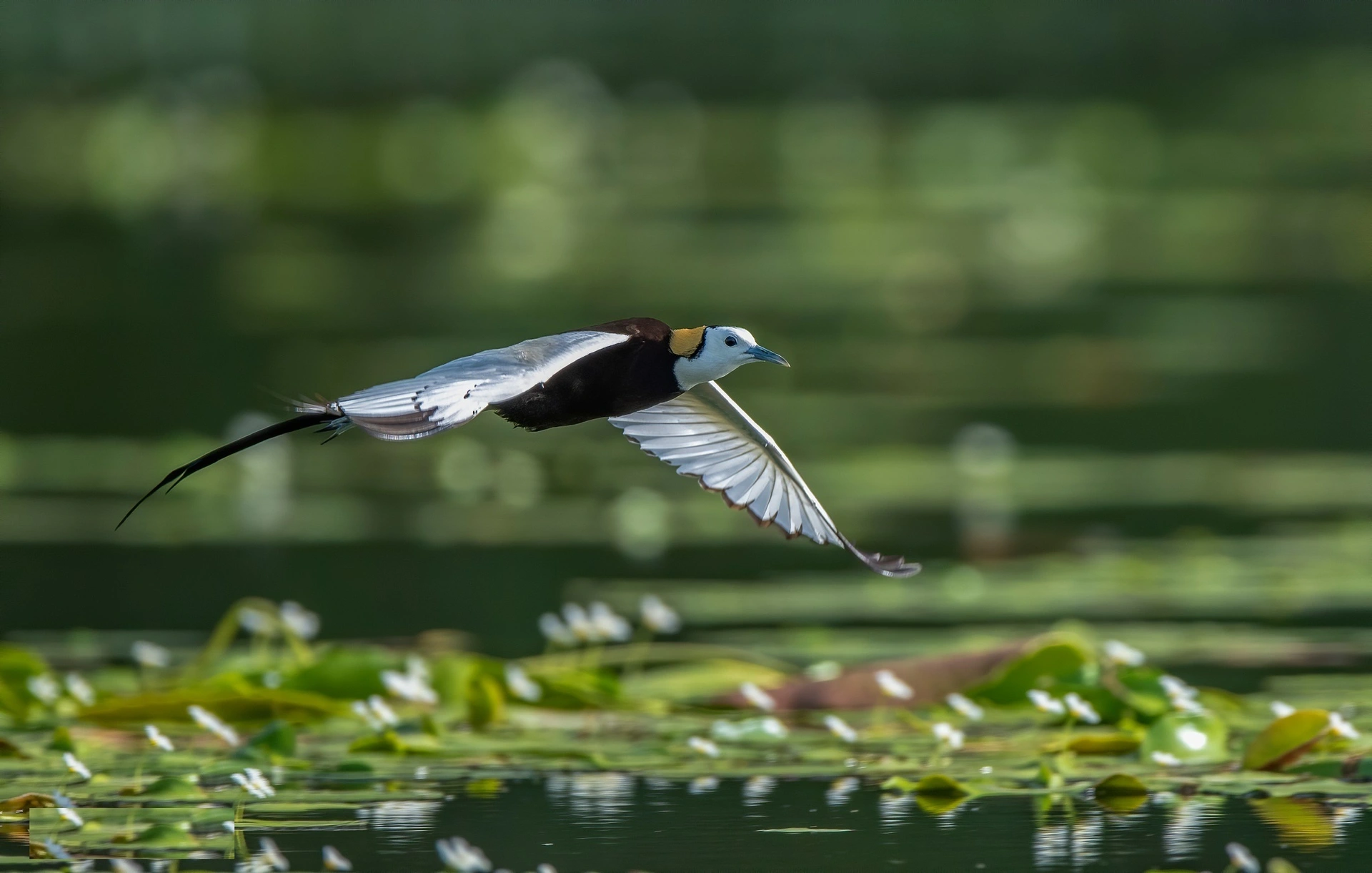
The water pheasant (Hydrophasianus chirurgus), a non-frequent settler, is one of the most impressive birds photographed by the author in Van Long. According to Mr. Hiep, during the breeding season, this bird is easy to recognize due to its long tail feathers, and when flying, it is observed that the wings are almost white.
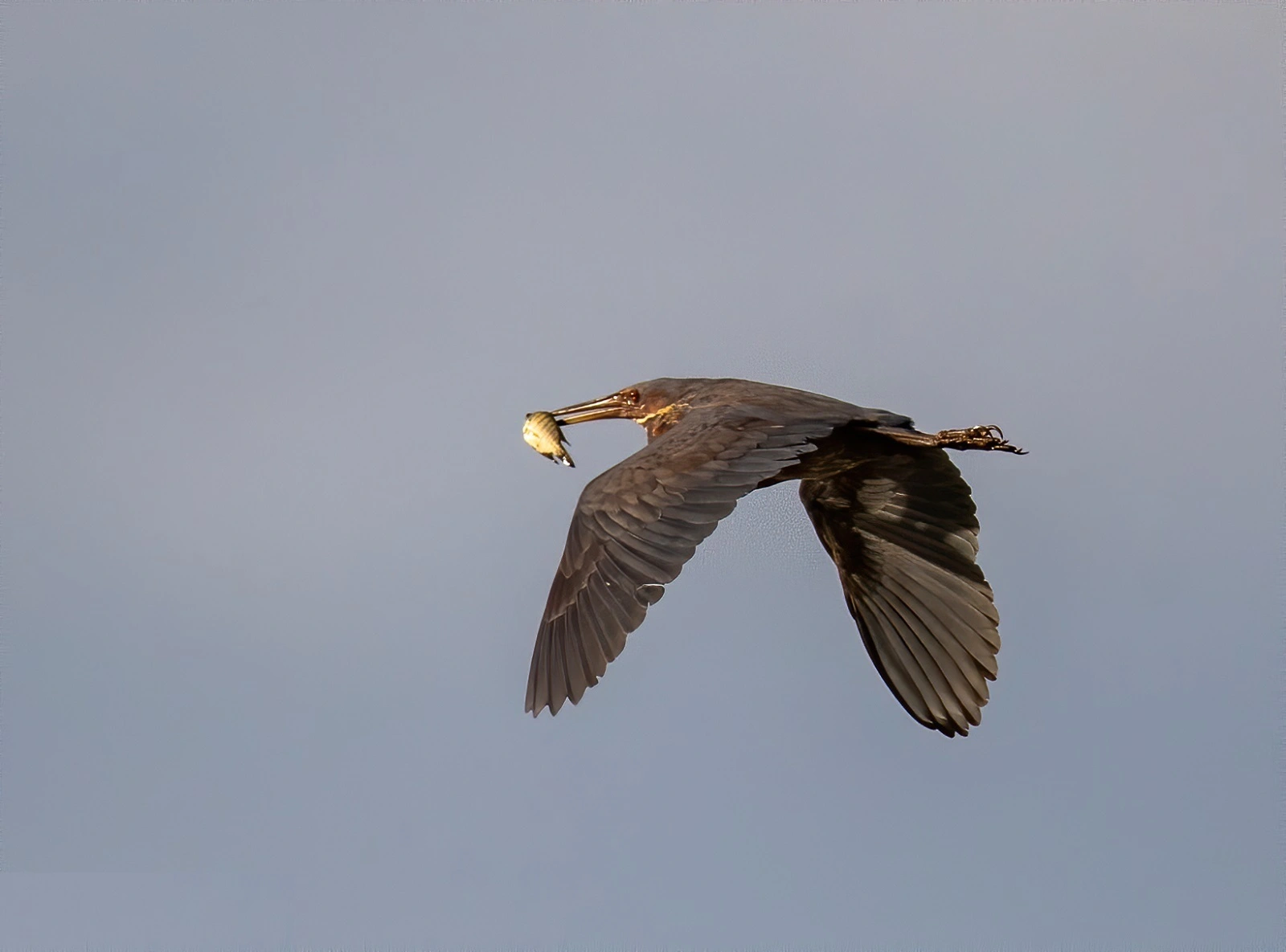
The stork (Lxobrychus flavicollis) catches the fish and flies high. The stork belongs to the heron family, has a slightly long neck and a long yellowbeak, and feeds on fish, insects and amphibians.
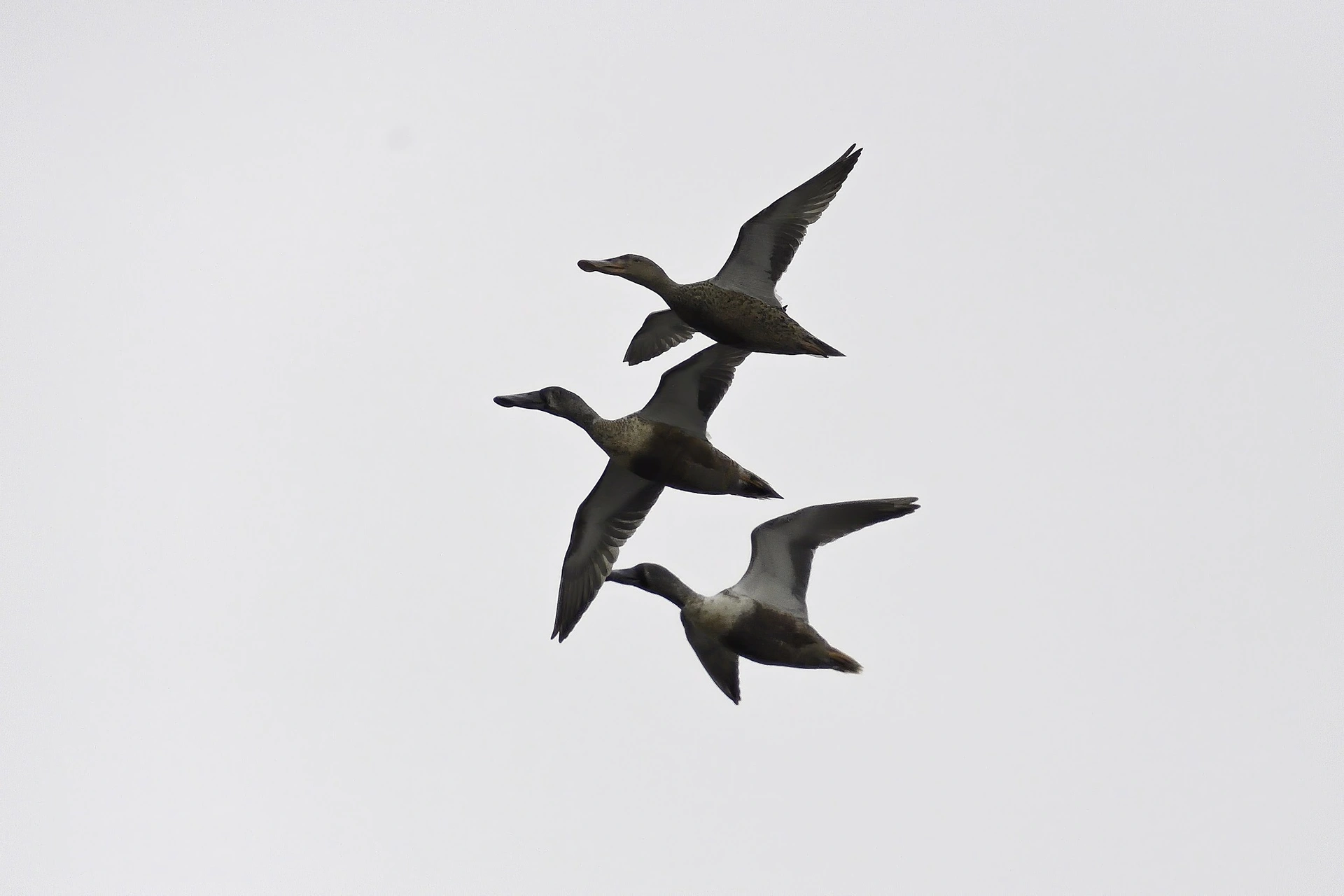
A flock of spoonbill ducks (Anas clypeata) flying in the sky of Van Long lagoon. This is a migratory bird, large in size, about 50 cm in the duck family, with a spoon-shaped dark beak.
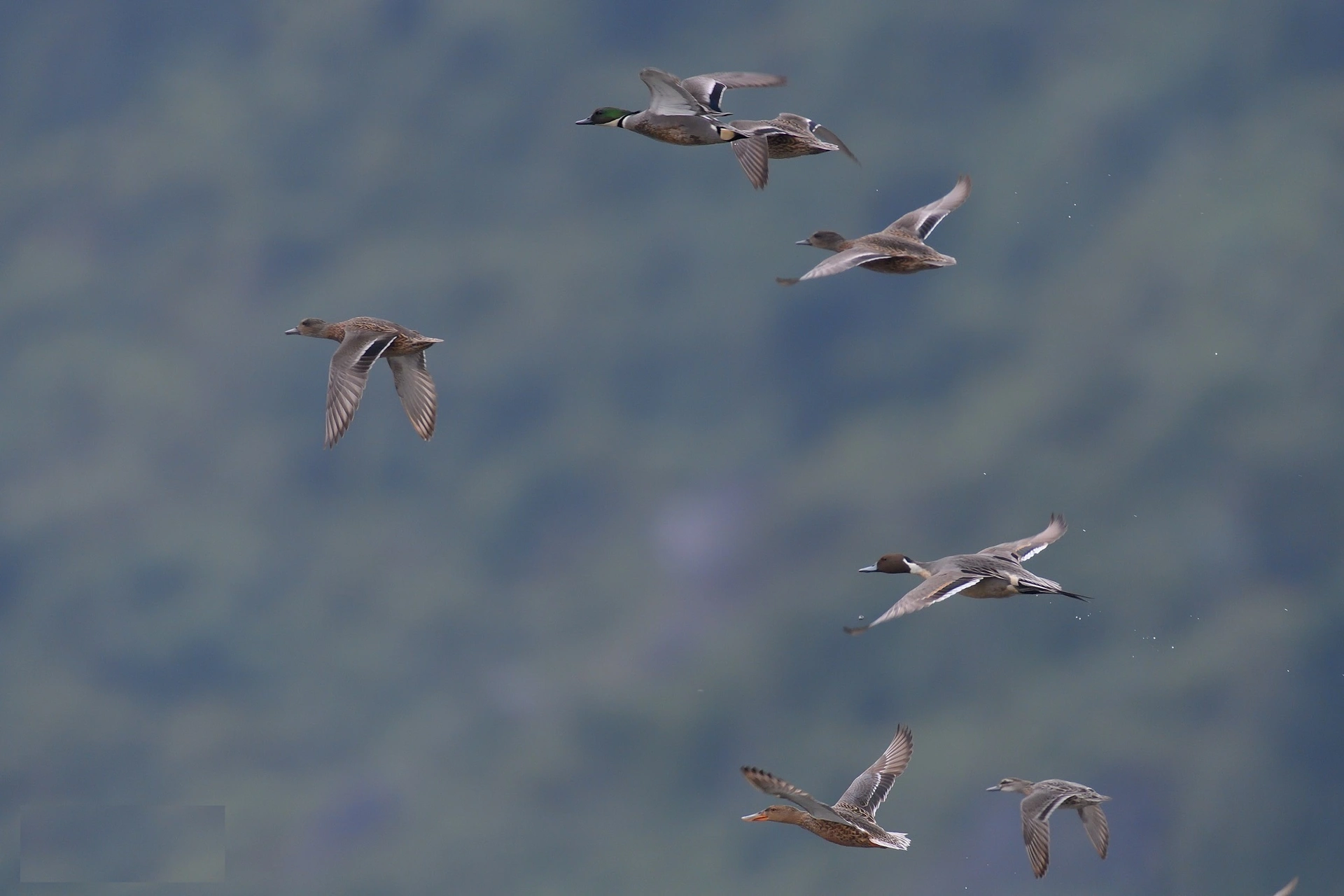
The flock of crescent ducks (Anas falcata), in which the recognizable male bird has a large glossy black head, is a migratory species, not common in the swamps.
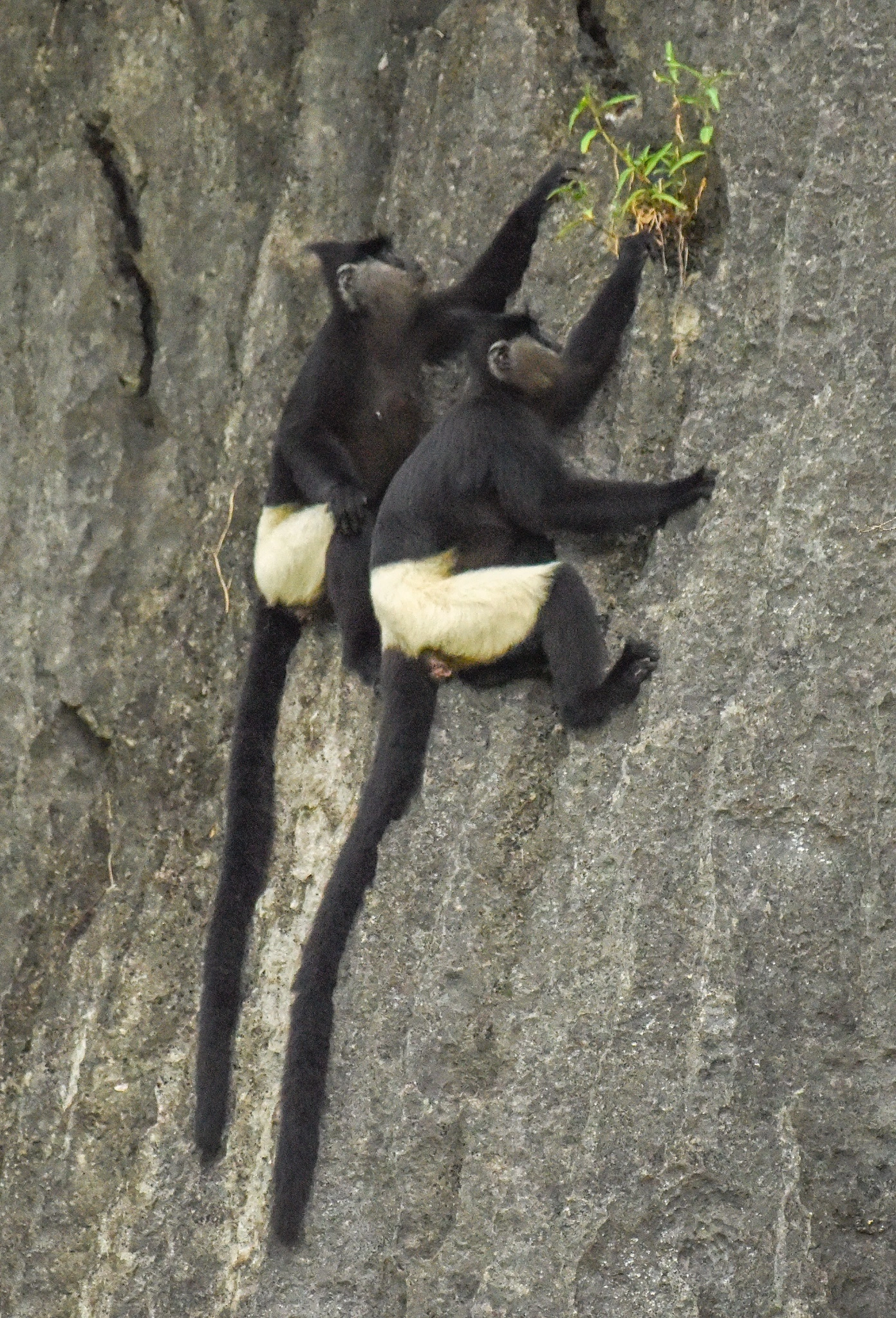
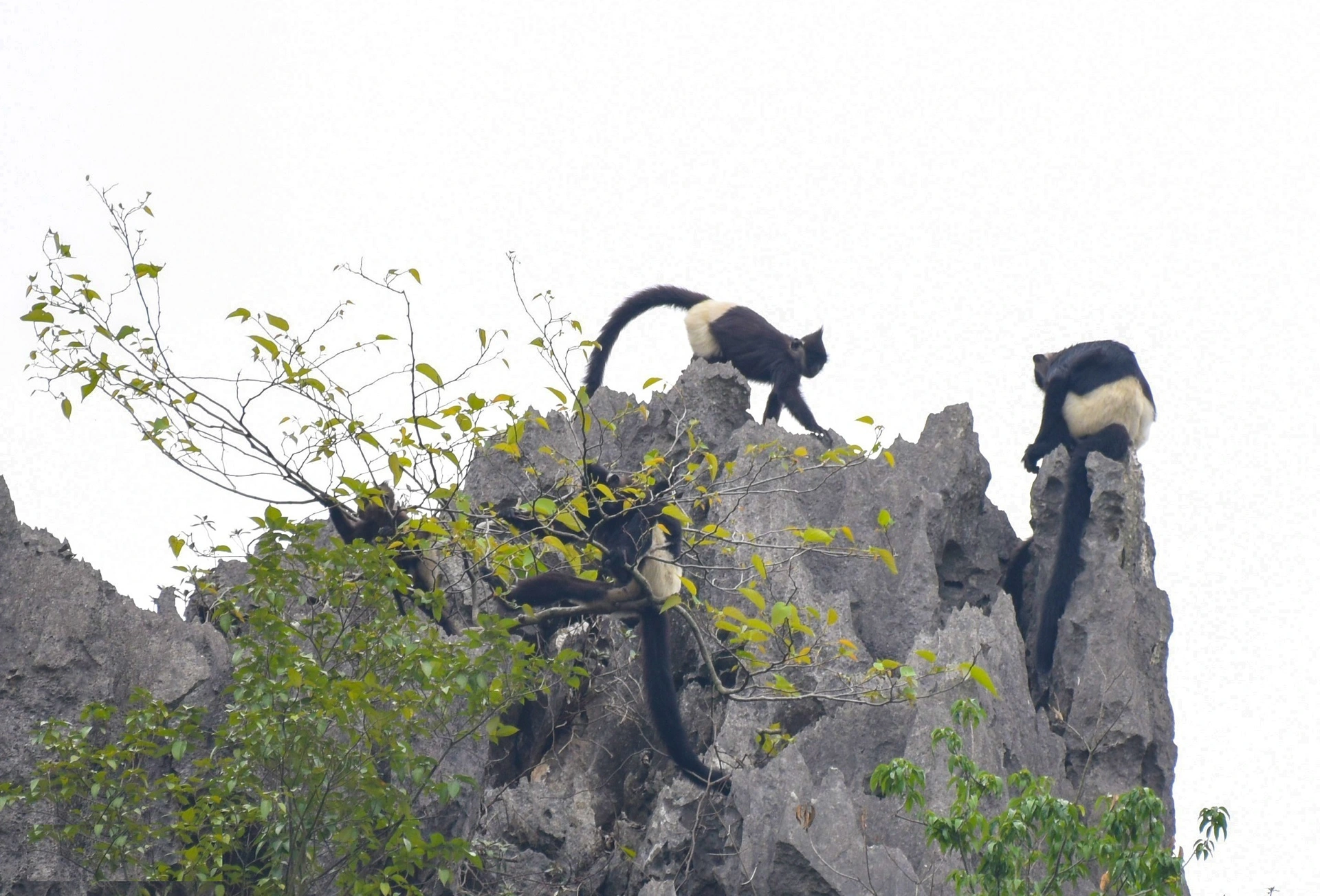
Van Long Lagoon is not only an impressive eco-tourism destination, where guests can observe birds and animals, but also the natural habitat of more than 200 white-shorted langurs (also known as white-rumped langurs, Trachypithecus delacouri), which is a rare endemic species named in the Red Book of Vietnam and the world prioritized for protection.
From May to July every year, the water surface of Van Long is lit up with a pink color of the lotus blooming season, which is the time when visitors can visit the bay and see lotus and birds. However, from November to April of the following year (dry season), the new lagoon is filled with the white color of flocks of birds that fly back to live, creating a very poetic scene.
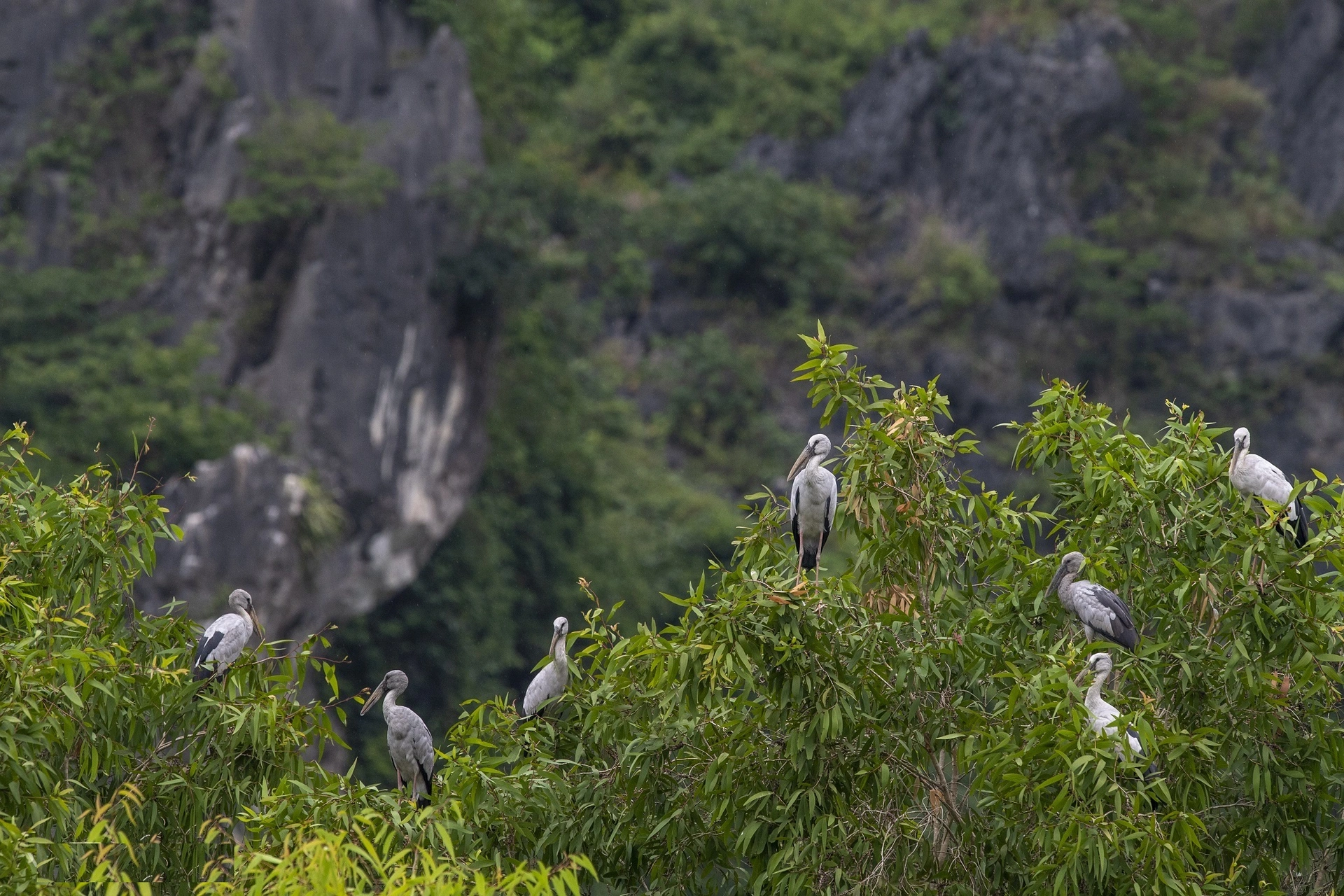
Visitors need to buy scenic tickets for 20,000 VND/person and ferry tickets for 60,000 VND/boat (carrying 2 people). Taking a boat in Van Long, visitors can also discover more unique rocks such as Meo Co Mountain, Raspberry, Book Box, Ban Rock, Nghien, Co Tien... and the caves of Fish, Ball, Turtle, Lemon...
Photo: Nguyen Manh Hiep
According to VnE
